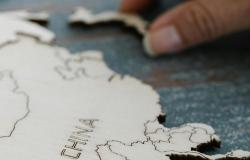
This article contributes to the expanding literature on China's position in international organisations by examining the extent to which, and how, China's exercise of power in the United Nations (UN) development pillar has evolved over the last decade. Building on a four-legged power framework, we contrast the status quo of power configurations in UN development work with China's evolving attempts to exercise compulsory, institutional, structural and productive power. We identify a heterogeneous set of engagement patterns and find that China's standing as a developing country is an integral part of how its global power ambitions unfold at the UN. While shifts in China's power in and through UN development work have remained limited, taken together insights from the power type analysis suggest that China is in the process of challenging and/or redefining some of the central contours of the UN development pillar.
Policy Implications
- China should assume greater responsibility in the UN development pillar, in particular by providing voluntary funding in line with its economic abilities.
- While China has considerable potential to co-shape the programmatic orientation of UN development work, Southern member states need to make sure that their interests and ownership in China-led multilateral processes are respected.
- All member states should ensure that ongoing struggles over national influence at the UN unfold with respect to the rules, values, and neutrality of the UN.
Photo by Lara Jameson